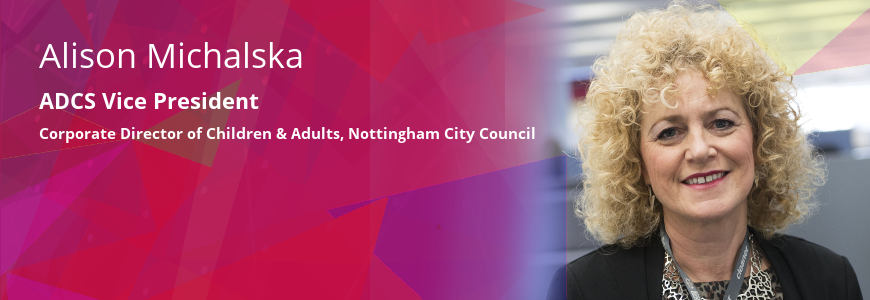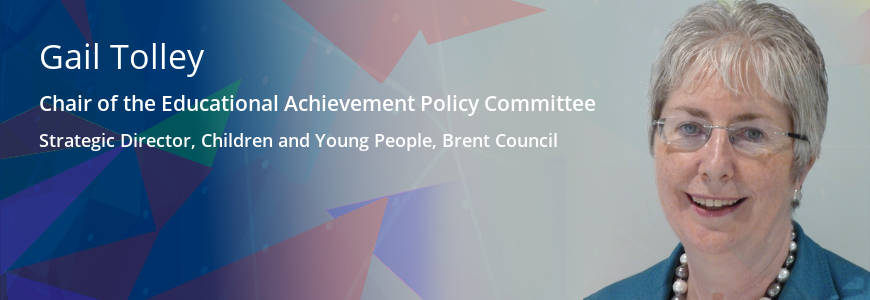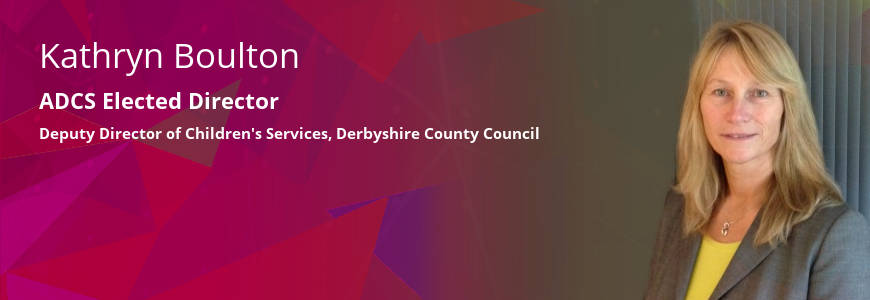Attendance is everyone's business

This week, students up and down the country have been returning to school, or beginning at their new school after a well deserved summer holiday, even if the weather hasn’t really resembled much of a summer… Even before term started, a number of schools have had to deal with the confusion and fall-out associated with RAAC. ADCS remains in conversation with government and we have urged them to ensure there is a clear focus on vulnerable children so that they are supported and safeguarded. Local authorities have a key role here to help coordinate local responses but DfE must have a much clearer communication strategy so that everyone is kept updated and can prepare accordingly. There will be a lot of learning from the early stages of the pandemic that can be drawn on.
Aside from RAAC, those of us who work in or with schools will be keeping a close eye on attendance and making sure children are in school on the first day of term. I was fortunate enough to attend a meeting at 10 Downing Street this week for the government’s Attendance Action Alliance to discuss how we can all help tackle rising levels of absence in our schools. This is rightly a priority for national government, but also for local authorities who have a key role in overseeing attendance patterns across their area. Recent attendance figures from the last academic year outline the significant challenge we face as we collectively try to tackle the worrying rates of absenteeism and persistent absence across the country. This requires a whole system response with all partners providing the right support to meet children’s needs.
The reasons for persistent absenteeism are often a symptom of wider issues in a child’s home life and it is important we work with schools, children and their families to understand and remove barriers to attending school as early as possible. The Department for Education’s guidance Working together to improve school attendance recognises some of this and has a welcome focus on the importance of early help where there are wider issues, however, ADCS is clear that the new duties placed upon local authorities must be met with the required funding. In the context of over a decade of austerity, many of our early help services have been cut as budgets have been heavily reduced. The government must recognise this reality and provide the necessary funding that will allow local authorities to deliver this important work in the most effective way.
Good attendance is not just an enabler for better academic outcomes, it is also a protective factor for our most vulnerable children and young people. Children who are persistently absent and not accessing education are at significant risk of being victims of harm, exploitation, or radicalisation. We are now seeing a growing attendance gap between children from disadvantaged backgrounds and their peers: across the 2022/23 academic year, 37.9% of pupils eligible for free school meals were persistently absent, compared to 16.7% who aren’t eligible. At the same time, the educational attainment gap is also increasing, something that has also be greatly exacerbated by the ongoing impacts of the pandemic. The role of partner agencies is key here and all professionals who support children and young people should be aware of the importance of regular attendance and the wider issues that persistent absence may be symptomatic of. For example, this could be linked to children’s mental health and wellbeing yet the services that support them have been severely affected by the pandemic too. With waiting lists to access children’s mental health services far too long, there are multiple challenges for government to address.
All local authorities will be doing everything they can to ensure as many children as possible are returning to school for the start of term, but the factors that we know are strongly linked to persistent absence, such as poverty and disadvantage must be addressed by national government if we are to tackle what is clearly a long-term issue. After two years of disruption to children’s education, ensuring children are in school when they need to be must be everyone’s business.
Related Blog Articles
This needs to be the starting point of everything we do in children’s...
In Care
As with so much in life you learn a lot from your children. It was only when my...
In General
Anyone who has tuned in to The Archers recently will no doubt have been gripped...
In Safeguarding & Child Protection
I continue to be amazed by the extraordinary efforts of the staff working in...
In Safeguarding & Child Protection
As someone whose career anchor is teaching, with eight years as a secondary...
In Education
This blog was first due a couple of weeks ago, but the small matter of an ILACs...
In
The fall out following the announcement of a new national funding formula (NFF)...
In Funding
I am passionate - as I know many people are - about relationship-based...
In General
If I was going to choose a word for 2024 (which I’m not, as that would be...
In Education
“When ye proffer the pigge, open the poke”, circa 1858. Meat was a little...
In Education
For the umpteenth time in the last few months I have read articles by...
In General
December is particularly difficult as our winter pressures really start to bite;...
In Safeguarding & Child Protection
This week our 0-25 Together Service organised their safeguarding conference...
In Safeguarding & Child Protection
Next week, the Chancellor, Sajid Javid, will announce spending plans for public...
In General
In the week that “Freedom Day” was delayed for a month, almost as if it were...













